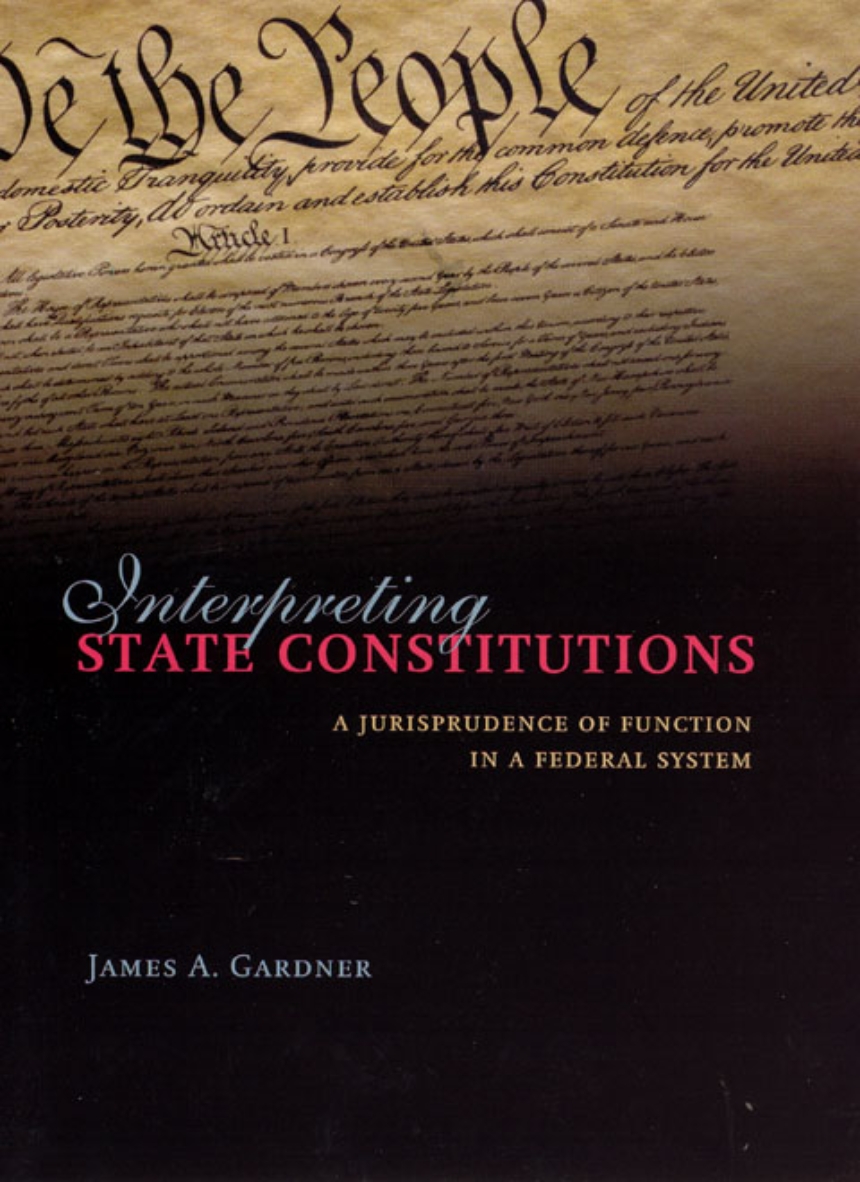Interpreting State Constitutions
A Jurisprudence of Function in a Federal System
Interpreting State Constitutions examines and proposes a solution to a problem central to contemporary debates over the enforcement of civil liberties: how courts, government officials, and lawyers should go about interpreting the constitutions of the American states.
With the Supreme Court’s retreat from the aggressive protection of individual rights, state courts have begun to interpret state constitutions to provide broader protection of liberties. This development has reversed the polarity of constitutional politics, as liberals advocate unimpeded state power while conservatives lobby for state subordination to a constitutional law controlled centrally by the Supreme Court.
James A. Gardner here lays out the first fully developed theory of subnational constitutional interpretation. He argues that states are integral components of a national system of overlapping and mutually checking authority and that the purpose of this system is to protect liberty and defend against federal domination. The resulting account provides valuable prescriptive advice to state courts, showing them how to fulfill their responsibilities to the federal system in a way that strengthens American constitutional discourse.
With the Supreme Court’s retreat from the aggressive protection of individual rights, state courts have begun to interpret state constitutions to provide broader protection of liberties. This development has reversed the polarity of constitutional politics, as liberals advocate unimpeded state power while conservatives lobby for state subordination to a constitutional law controlled centrally by the Supreme Court.
James A. Gardner here lays out the first fully developed theory of subnational constitutional interpretation. He argues that states are integral components of a national system of overlapping and mutually checking authority and that the purpose of this system is to protect liberty and defend against federal domination. The resulting account provides valuable prescriptive advice to state courts, showing them how to fulfill their responsibilities to the federal system in a way that strengthens American constitutional discourse.
312 pages | 6 x 9 | © 2005
Law and Legal Studies: General Legal Studies, Law and Economics, Law and Society, Legal History, Legal Thought
Reviews
Table of Contents
Preface
Introduction - The Problem of State Constitutional Interpretation
1. The Emergence of the Modern Debate
2. The Dead End of Romantic Subnationalism
3. The Mechanics of Federalism
4. State Constitutions in the Federal Scheme
5. Patterns of Distrust
6. A Functional Account of State Judicial Power
7. An Approach to State Constitutional Interpretation
Afterword - Function and Interpretation
Appendix
Bibliography
Index
Introduction - The Problem of State Constitutional Interpretation
1. The Emergence of the Modern Debate
2. The Dead End of Romantic Subnationalism
3. The Mechanics of Federalism
4. State Constitutions in the Federal Scheme
5. Patterns of Distrust
6. A Functional Account of State Judicial Power
7. An Approach to State Constitutional Interpretation
Afterword - Function and Interpretation
Appendix
Bibliography
Index
